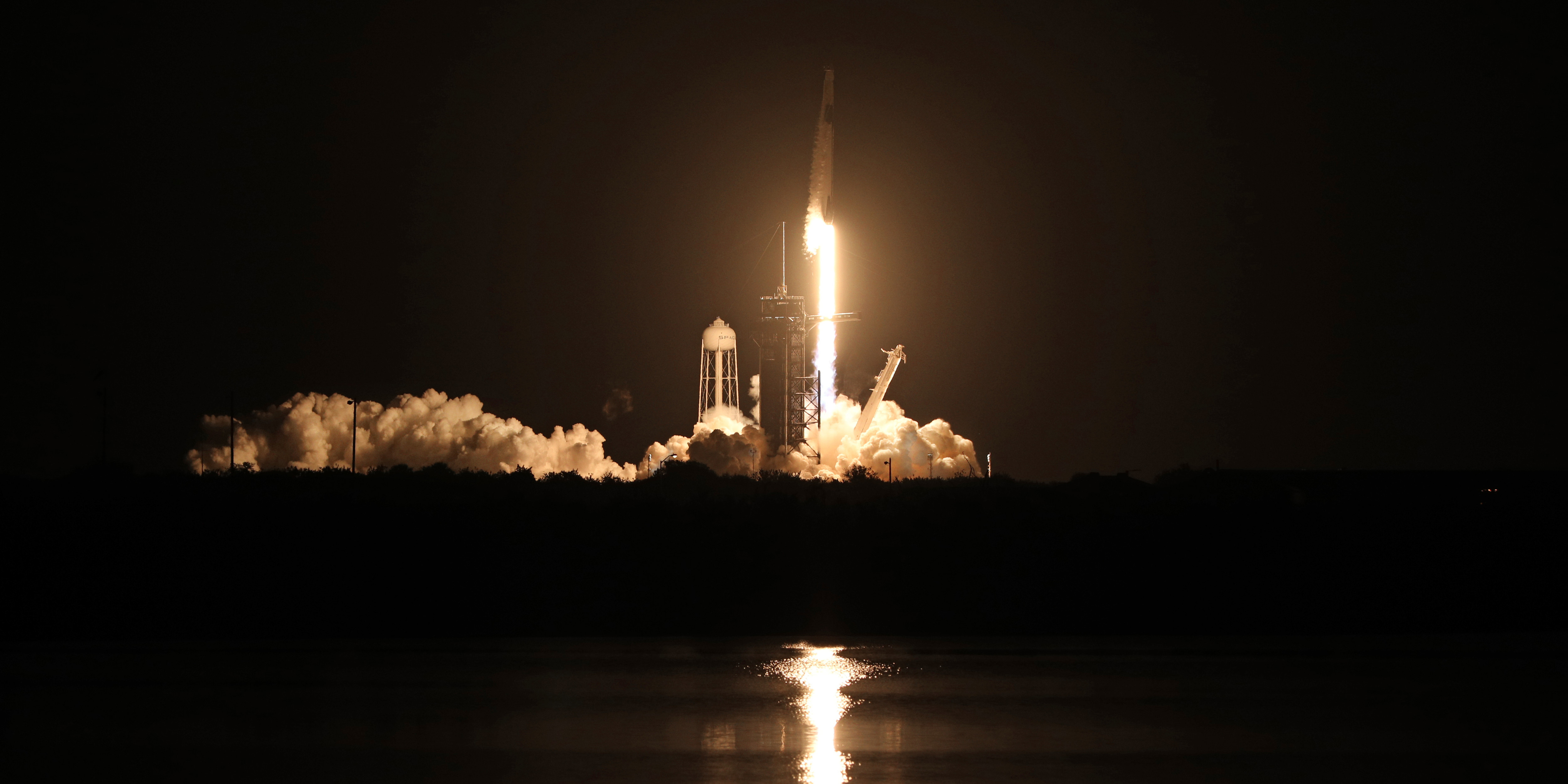SpaceX's Falcon 9 rocket took off safely on time from Kennedy Space Center in Florida, with three American astronauts and a Japanese on board.
Their trip will last 27 and a half hours, with the Dragon capsule due to dock around 4 a.m. GMT on Tuesday at the ISS, where two Russians and an American are located.
Three American astronauts and a Japanese took off Sunday from Florida to the International Space Station (ISS) aboard a SpaceX rocket, NASA's new means of space transportation after nine years of dependence on Russia.
SpaceX's Falcon 9 rocket took off safely at the scheduled time from the Kennedy Space Center with Michael Hopkins, Victor Glover, Shannon Walker and Soichi Noguchi aboard the capsule attached to the top.
The takeoff, in the evening, illuminated the entire Florida coast.
A 27 and a half hour trip
Less than three minutes after take-off, at an altitude of 90 km and while the rocket was spinning at 7,000 km / h, the first stage detached without incident, to return to Earth and be reused, while the second stage with the capsule continued its course.
The capsule's trajectory was correct, SpaceX said.
Their trip will last 27 and a half hours, with the Dragon capsule due to dock around 4 a.m. GMT on Tuesday at the ISS, where two Russians and an American are located.
They will stay there six months.
This first "operational" flight follows the successful demonstration mission from May to August, during which two American astronauts were taken to the ISS then brought back to Earth safely by SpaceX.
Loose ties between Washington and Moscow in the space domain
As European astronaut Thomas Pesquet tweeted, the first stage of the rocket will be reused for the mission that will take him and three teammates in spring 2021 to the station.
US Vice President Mike Pence attended the launch on site.
"Welcome to the continuation of a new era of manned space exploration in America," he said shortly before.
SpaceX's Dragon capsule is the second device currently capable of reaching the ISS, along with the very reliable Russian Soyuz, which has since 2011 routed all visitors to the station, after the shutdown of American shuttles.
The ties between Washington and Moscow in the space domain, one of the few where they remained good, are weakening.
Breaking with more than 20 years of cooperation on the ISS, Russia will not participate in the next mini-station wanted by NASA around the Moon, the Gateway.

